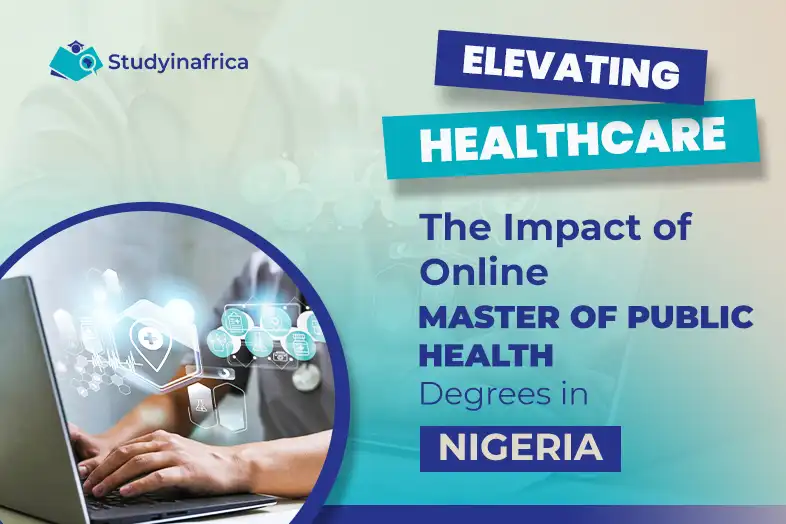
Blog Summary
In today’s rapidly evolving educational landscape, many individuals choose distance learning to pursue higher education while managing professional responsibilities. This approach, known as blended learning, combines online educational materials with traditional face-to-face interactions, offering flexibility and accessibility to learners. Balancing work and study in such a dynamic environment requires careful planning, discipline, and effective time management strategies. Whether navigating a full-time job, family obligations, or other commitments, mastering the art of balance is essential for academic success and personal well-being.
Table of Contents
Introduction
Blended learning is a transformative educational approach that merges the flexibility of online learning with the benefits of traditional classroom interactions. This combination allows learners to manage their educational journey alongside demanding work schedules and personal responsibilities. With digital tools and virtual platforms, students can access various learning resources tailored to their needs and timelines.
The Importance of Balancing Work and Study
Balancing work and study involve more than just time management; it’s about optimizing one’s lifestyle to achieve academic and professional growth. A harmonious balance increases productivity, lowers stress levels, and fosters a sense of accomplishment in educational and career pursuits. By prioritizing this balance, learners can handle multiple responsibilities while maintaining a positive outlook and overall well-being.
Read Also:
Explore more on how online learning can benefit working professionals in Africa. Check out our detailed blog for insights and strategies to enhance your professional growth while pursuing education
Creating a Structured Schedule
Using Digital Calendars
Digital calendars like Google Calendar or Outlook are invaluable for organizing and prioritizing tasks. They help students allocate time for studying, attending virtual classes, fulfilling work commitments, and engaging in personal activities. Setting reminders and notifications ensures tasks are completed promptly, minimizing the risk of missed deadlines.
Weekly Planning
Developing a weekly planner provides a visual roadmap of upcoming commitments and goals. Learners can proactively manage their time by outlining study sessions, assignment deadlines, work hours, and personal engagements and make informed decisions about task prioritization and time allocation. This structured approach enhances efficiency and gives learners control over their academic and professional responsibilities.
Setting Achievable Goals
Breaking Down Tasks
Breaking down larger study goals into smaller, manageable tasks promotes clarity and steady progress. For example, instead of broadly aiming to “prepare for an exam,” students can set specific actions like reviewing lecture notes, completing practice exercises, and participating in study groups. This approach fosters a sense of accomplishment with each completed task and motivates learners to maintain momentum throughout their academic journey.
SMART Goals
Adopting SMART (Specific, Measurable, Achievable, Relevant, Time-bound) criteria when setting goals provides a structured framework for goal setting and progress tracking. Whether pursuing academic milestones or professional objectives, SMART goals ensure that objectives are realistic, actionable, and aligned with personal aspirations. By establishing clear benchmarks and timelines, learners can gauge their progress and adjust their strategies to stay on track towards achieving their goals.
Finding Your Ideal Study Environment
Home Study Area
Creating a conducive study environment at home is essential for fostering concentration and minimizing distractions. Designating a dedicated study space that is well-lit, comfortable, and equipped with critical study materials enables learners to cultivate a productive mindset during study sessions. This designated area signals the brain to focus and engage in academic tasks effectively.
Alternative Study Locations
Exploring alternative study venues, such as libraries, coworking spaces, or quiet cafes, offers a change of scenery and promotes varied learning experiences. These environments provide a retreat from home distractions and offer amenities conducive to focused study sessions. By diversifying study locations, learners can adapt their study environment to suit different learning preferences and optimize their productivity.
Prioritizing Self-Care
Scheduling Breaks
Integrating regular breaks into study sessions is crucial for maintaining mental acuity and preventing burnout. Techniques like the Pomodoro Technique, which involves working for concentrated intervals followed by brief breaks, enhance productivity and sustain motivation throughout extended study periods. Scheduled breaks allow learners to recharge, refocus, and approach academic tasks with renewed energy and clarity.
Healthy Lifestyle
Prioritizing physical well-being through regular exercise, balanced nutrition, and adequate sleep is essential for sustaining cognitive function and overall health. Physical activity improves concentration and memory retention, alleviates stress, and enhances mood. By adopting a holistic approach to self-care, learners can optimize their academic performance and effectively manage the demands of both work and study.
Utilizing Technology for Productivity
Productivity Apps
Exploring productivity tools such as Trello, Asana, or Todoist facilitates task management, deadline tracking, and collaboration with peers or colleagues. These applications streamline workflow processes, enhance organizational efficiency, and promote accountability in completing assignments and projects. By leveraging technology, learners can optimize their productivity and allocate resources effectively to achieve desired academic and professional outcomes.
Online Learning Resources
Harnessing the educational resources offered by online platforms and institutional portals enriches learning experiences and supplements course materials. Access to virtual lectures, e-books, interactive tutorials, and discussion forums empowers learners to engage with content at their own pace and review challenging concepts whenever necessary. These digital resources promote flexibility, accessibility, and self-directed learning, enabling students to customize their educational journey to suit their unique learning styles and preferences.
Tips for Staying Motivated
Establishing a Reward System
Implementing a reward system reinforces positive behaviour and incentivizes academic progress. Learners can cultivate a sense of achievement and motivation by setting achievable milestones and celebrating accomplishments such as completing assignments, achieving high exam scores, or mastering challenging topics. Rewards may range from small indulgences like leisure activities or favourite treats to more enormous incentives that align with long-term academic goals.
Engaging with Study Groups
Participating in or forming study groups with fellow distance learners fosters collaboration, knowledge sharing, and mutual support. Virtual study sessions provide opportunities for peer interaction, academic discourse, and collective problem-solving, enriching learning experiences and promoting academic success. By leveraging collective insights and diverse perspectives, learners can gain new insights into course materials, enhance their understanding of complex concepts, and build camaraderie within the academic community.
Conclusion
Balancing work and study within a blended learning framework demands resilience, adaptability, and strategic planning. By implementing the strategies outlined in this guide—such as creating structured schedules, setting achievable goals, prioritizing self-care, and leveraging technological resources—distance learners can navigate their educational journey successfully while excelling in their professional endeavours. Achieving a harmonious balance requires dedication, proactive time management, and a commitment to personal well-being. Through continuous self-reflection and adjustment, learners can cultivate sustainable habits that support academic excellence, career advancement, and overall fulfilment in their educational pursuits.
FAQ
What is blended learning?
Blended learning combines online educational resources with traditional face-to-face interactions, offering flexibility and accessibility for learners.
How can I develop an effective study plan schedule?
Use digital calendars and weekly planners to allocate time for study sessions, work hours, and personal activities. Set reminders, prioritize tasks based on deadlines, and optimize time management.
How important is self-care in balancing work and study?
Self-care is essential for maintaining mental and physical well-being while managing multiple responsibilities. Schedule regular breaks, prioritize healthy habits, and ensure adequate rest to sustain productivity and academic performance.
What tools can I utilize to enhance productivity in a blended learning environment?
Utilize productivity apps for task management, access online learning resources provided by your institution, and engage in virtual study groups to foster peer collaboration and support.
How do I create a study schedule that fits around my work hours?
Start by identifying your most productive times of the day. Then, create a weekly schedule that includes blocks of time for both work and study, allocating sufficient time for each task. Use digital tools like Google Calendar or Trello to plan and organize your schedule and set reminders to stay on track. Be realistic about how much time you need for each activity, and avoid overloading your schedule.




